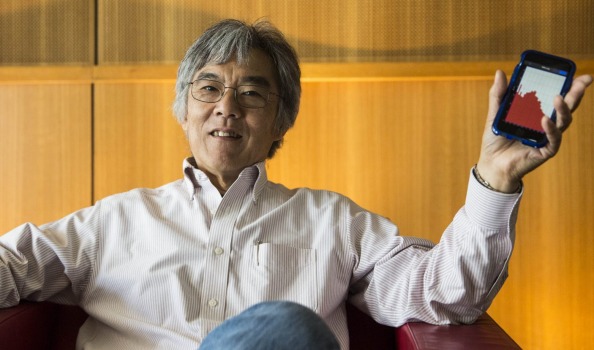
Slowing Brain Changes
Article review by Michael Wong; Principal Audiologist, Alpha Hearing.
I was interested to read this article by journalist Jill Margo in the Australian Financial Review (Apr 5 2016). Through my years in clinical practice, I have come to believe that most people take their sense of hearing for granted. Those of us like David Ryugo, the professor quoted in the article, who are aware of auditory deprivation and consciously ‘go to great lengths’ to protect their hearing are few and far between.
In the article, Professor Ryugo describes hearing as the hidden sense. In a recent article I wrote for the local newspaper on veterans of war living with hearing loss, I made the point that hearing loss is not visible or painful and very few people die because of it and as a result, hearing loss as a disorder receives very little attention in the community and also in our mainstream media.
The article talks about hearing aids and hints at some common accessories we fit to people with hearing loss. Less accurately, the article describes high-end devices that are implanted on the ear drum. I’ve been fitting hearing devices for almost 20 years and I’ve never known a device that can be implanted on the ear drum. I suspect the Professor is talking about invisible-in-canal devices or extended wear devices.
The article does not do a great job at highlighting the importance of patient-centred counselling, friendly but firm guidance and ongoing professional support. I believe these aspects of a treatment plan are far more important than the selection and fitting of the hearing aid(s) for high quality outcomes.
The most valuable attribute I have as an audiologist is being an active listener and being able to help people with hearing loss accept they have a problem worth treating when they first detect the problem. That last part is the key. Waiting 10 years (on average) before acting on professional advice to get a hearing aid fitted is not good management. Nor does it lead to very effective outcomes!
An excellent audiologist will understand they are not just correcting for hearing loss. More importantly, as suggested in the article, they are preventing grumpiness, isolation, depression and dementia – emotions and conditions that I wholeheartedly agree are commonly associated with hearing loss.
Towards the end, the article takes a slight tangent and talks about some things that can cause hearing loss. It mentions the antibiotic gentamicin and its ototoxic nature. It mentions the damaging effects of loud noise, especially when delivered directly into the ear canal via ear buds or earphones.
However, by far, the most common cause of hearing loss is advancing age. As we age, our human bodies wear and tear. Our ears are not immune and our hearing deteriorates as we get older. If you are over the age of 70 years, it’s worth seeing an audiologist to get your hearing tested.
The article ends with an alert from the Professor. The alert is not based around science, medicine or research. Pointedly, the alert states that although some hearing care providers are excellent, some are in it for profit and are out there to take advantage of people.
It’s an unfortunate fact our industry has this reputation.
Many hearing care providers in the community are not even qualified audiologists. And many hearing care providers, including audiologists, work for large commercial companies that are profit driven, not patient-centred. Their performance is measured by how many hearing aids they can sell, rather than how many satisfied and happy people they act to serve.
One thing I know for certain. When you deal with Alpha Hearing, you know you are dealing with audiologists that are suitably qualified and moreover, audiologists that care!
To read the article, click here.
Image: Professor David Ryugo, with an app he uses to detect noise level. Source: Australian Financial Review
